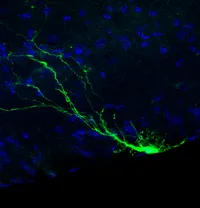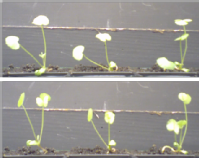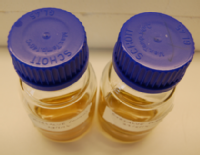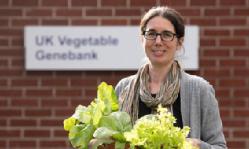Departmental news
Genetic mutation may hold answers to controlled breathing
 The relationship between the Cx26 gene and ability to regulate Carbon dioxide is to be explored by Professor Nick Dale thanks to a £686,956 grant, from the BBSRC.
The relationship between the Cx26 gene and ability to regulate Carbon dioxide is to be explored by Professor Nick Dale thanks to a £686,956 grant, from the BBSRC.
Press Release (13 August 2020)
Natural way to boost crop yield to be explored by Warwick Scientists
 An innovative way to increase plant yield naturally, reducing the need for expensive fertilisers is being explored by Dr Miriam Gifford, Dr Isabelle Carré and colleagues, thanks to a £492,343 grant from the BBSRC.
An innovative way to increase plant yield naturally, reducing the need for expensive fertilisers is being explored by Dr Miriam Gifford, Dr Isabelle Carré and colleagues, thanks to a £492,343 grant from the BBSRC.
Press Release (12 August 2020)
Medieval medicine remedy could provide new treatment for modern day infections
 Antibiotic resistance is an increasing battle for scientists to overcome, as more antimicrobials are urgently needed to treat biofilm-associated infections. However, Dr Freya Harrison and colleagues say research into natural antimicrobials could provide candidates to fill the antibiotic discovery gap.
Antibiotic resistance is an increasing battle for scientists to overcome, as more antimicrobials are urgently needed to treat biofilm-associated infections. However, Dr Freya Harrison and colleagues say research into natural antimicrobials could provide candidates to fill the antibiotic discovery gap.
Press Release (28 July 2020)
Plant-based diets shown to lower blood pressure even with limited meat and dairy
Consuming a plant-based diet can lower blood pressure even if small amounts of meat and dairy are consumed too, according to new research from the University of Warwick.
Press Release (27 July 2020)
Breakthrough in studying ancient DNA from Doggerland that separates the UK from Europe
Professor Robin Allaby and colleagues have achieved a number of innovative breakthroughs in analysing sedimentary ancient DNA to reconstruct an 8,150 year old environmental catastrophe in an area that is now covered by the North Sea.
Press Release(16 July 2020)
Global warming will cause ecosystems to produce more methane than first predicted
Research by Dr Kevin Purdy et al suggests that as the Earth warms natural ecosystems such as freshwaters will release more methane than expected from predictions based on temperature increases alone.
Press Release (30 June 2020)
Warwick research part of project investigating newly discovered prehistoric shafts near Stonehenge
Professor Robin Allaby's lab is analysing soil samples from a newly discovered Neolithic structure near Stonehenge, to try and discover its purpose in ancient Britain.
Appetite can be increased by cells in the brain
Tanycytes are glial cells, which communicate with neurons in the brain to inform it of what we have eaten. Professor Nick Dale and colleagues have found when tanycytes are selectively stimulated appetite was increased.
New University of Warwick modelling supports cautious reopening of schools if other lockdown measures continue to control the coronavirus
The gradual reopening of schools, starting with primary schools, is unlikely to lead to a second wave of infection, according to new mathematical modelling of the COVID-19 outbreak from University of Warwick researchers, but we should be prepared to reintroduce lockdown measures should there be a significant rise in the number of new cases.

